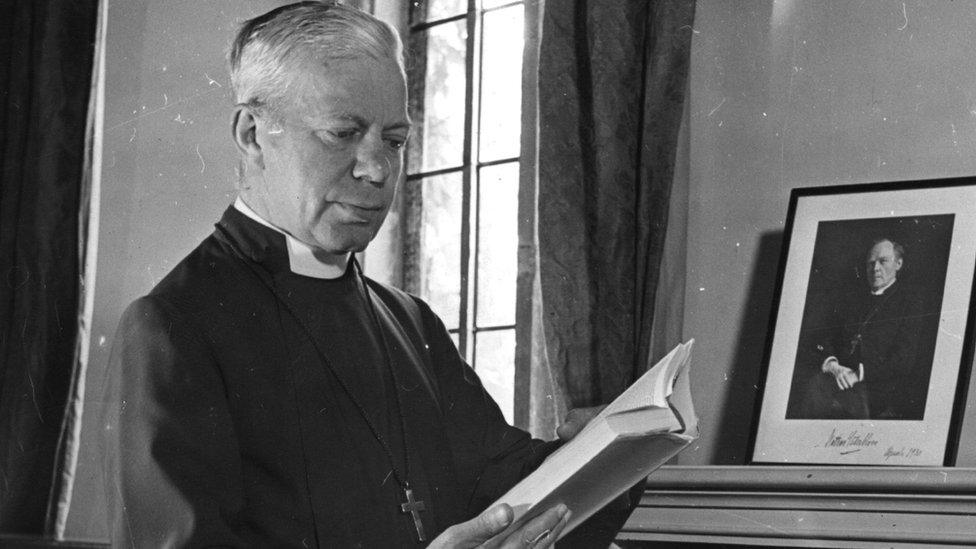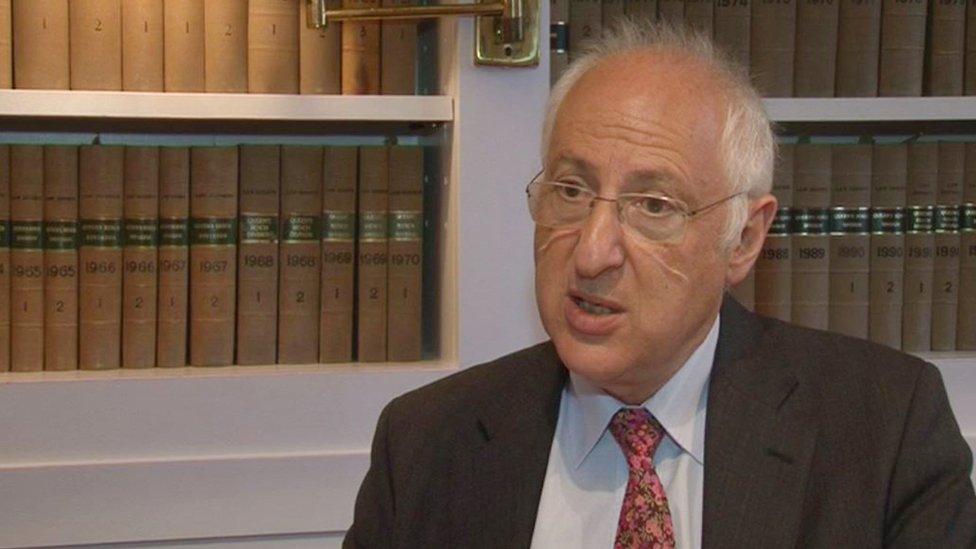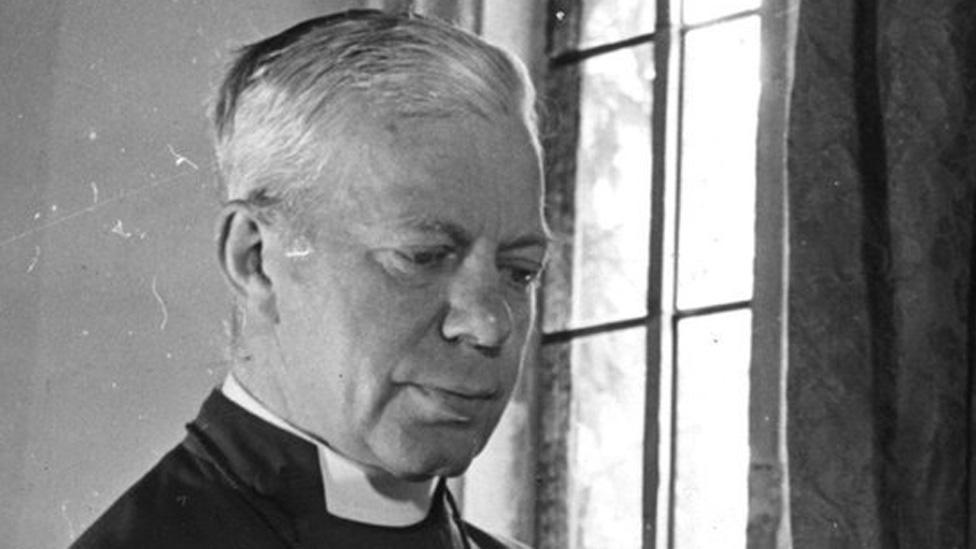Bishop George Bell case: Lord Carlile to lead review
- Published

The Rt Rev George Bell was Bishop of Chichester from 1929 until his death in 1958
An independent review into how the Church of England handled the case of a bishop accused of being a child abuser is to be led by Lord Carlile.
Last year the Church settled a civil claim over allegations of sexual abuse by the Bishop of Chichester, George Bell, in the late 1940s and early 1950s.
It apologised and paid compensation to a woman who said she was abused by him.
The review will look at how it handled the claims and the decision to settle.
'Neither damage nor salvage'
The "lessons learnt review", commissioned by the Church of England's National Safeguarding Team, is expected to be completed by the end of next summer.
Liberal Democrat peer Lord Carlile said: "My job is neither to damage nor salvage anybody's reputation.
"My job is to report on the way in which the Church of England looked into these issues and people will be able to draw their conclusions from the review that I produce."
The Bishop of Bath and Wells, Peter Hancock, who is the Church of England's safeguarding lead, said: "As with all serious cases there are always lessons to be learnt.
"The Church of England takes all safeguarding issues very seriously and we will continue to listen to everyone affected in this case while we await the findings of the review.
"The Diocese of Chichester continues to be in touch and offer support to the survivor known as Carol, who brought the allegations."

Lord Carlile said his "job is neither to damage nor salvage anybody's reputation"
The allegations against George Bell, who was Bishop of Chichester from 1929 until shortly before his death in 1958, were first made by the victim in 1995, but were not investigated or referred to the police.
The victim claimed the Rt Rev George Bell molested her in Chichester Cathedral as she sat listening to stories as a child.
She said he began abusing her when she was five as a relative, who was a church employee, took her to the cathedral.
Carol claimed the abuse continued for about four years.
She said she had written a letter to the then Archbishop of Canterbury, Lord Carey, in 2002, but her accusations were not taken seriously.
Lord Carey "strongly denied" ever seeing any communication from her, and the woman later issued a private apology to his family saying she had made an error.
A statement from her solicitor said she first made complaints in 1995 to Bishop Kemp of Chichester, and was prompted to complain again to Lambeth Palace at the time of the Jimmy Savile revelations.
In 2013 she wrote to the Archbishop of Canterbury, Justin Welby, when the matter was referred to the police.

Analysis: Martin Bashir, BBC Religious Affairs Correspondent
Ever since the Church of England apologised and made a payment of £15,000 to Bishop George Bell's alleged victim, a group of his supporters have been agitating for information on how the Church arrived at its decision.
Today's announcement of a formal review, to be led by Lord Carlile, is precisely what they have been seeking.
The scope of the review will examine why the Church chose not to contest, but to settle the alleged victim's complaint, what constituted the 'expert independent reports' that they relied upon and why the Church chose not to interview individuals - such as Bishop Bell's chaplain Adrian Carey - who spent a considerable amount of time in and around the Bishop's residence.
Former Archbishop of Canterbury Lord Carey, a member of the George Bell Group, has described the original process as akin to a kangaroo court.
Lord Carlile has said he will report his findings next summer but until then, the reputation of Bishop George Bell will remain in abeyance.

The review will look at the processes surrounding the allegations brought in 1995 and again to Lambeth Palace in 2013.
It will also consider the processes used to inform the decision to settle the case.
Desmond Browne QC, of the George Bell Group, which supports the bishop, said: "Round about the time that these assaults are alleged to have taken place I was actually christened by George Bell so I was proud of that and very very saddened when the announcement was made by the church of the settlement.
"I've obviously had to look closely at the settlement and nothing that I have seen either about the evidence or the process adopted by the church has led me to believe that there is any substance in the allegations."
Lord Carlile of Berriew, a barrister, was the government's independent reviewer of terrorism legislation between 2001 and 2011, and was awarded the CBE in 2012 for services to national security.
In 2010, he was asked to lead an inquiry into child protection at a Roman Catholic private school in London where a paedophile priest abused five pupils.
- Published19 October 2016

- Published5 August 2016

- Published28 June 2016

- Published5 May 2016

- Published25 March 2016

- Published7 March 2016
